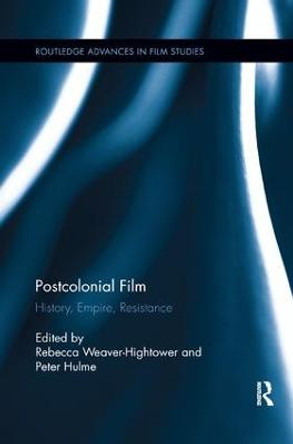Description
Majumdar details how filmmakers as well as a host of film societies and publications sought to foster a new cinematic culture for the new nation, fueled by enthusiasm for a future of progress and development. Good films would help make good citizens: art cinema would not only earn global prestige but also shape discerning individuals capable of exercising aesthetic and political judgment. During the 1960s, however, Satyajit Ray, Mrinal Sen, and Ritwik Ghatak-the leading figures of Indian art cinema-became disillusioned with the belief that film was integral to national development. Instead, Majumdar contends, their works captured the unresolvable contradictions of the postcolonial present, which pointed toward possible, yet unrealized futures.
Analyzing the films of Ray, Sen, and Ghatak, and working through previously unexplored archives of film society publications, Majumdar offers a radical reinterpretation of Indian film history. Art Cinema and India's Forgotten Futures offers sweeping new insights into film's relationship with the postcolonial condition and its role in decolonial imaginations of the future.
About the Author
Rochona Majumdar is an associate professor in the Departments of South Asian Languages and Civilizations and Cinema and Media Studies at the University of Chicago. She is the author of Marriage and Modernity: Family Values in Colonial Bengal (2009) and Writing Postcolonial History (2010).
Reviews
From writer Rochona Majumdar comes this decidedly anti-colonialist read about the history of Indian cinema, with a specific eye towards post-independence India and the house of cards its democracy is built on. Highlight of the book is whenever Majumdar waxes philosophical about Ritwik Ghatak, a filmmaker worthy of much more discussion here stateside. -- Joshua Brunsting * CriterionCast *
Rochona Majumdar, the historian, intervenes in the rich discourse surrounding the films of Satyajit Ray, Mrinal Sen, and Ritwik Ghatak through her meticulously researched and compelling book, Art Cinema and India's Forgotten Futures: Film and History in the Postcolony. -- Swarnavel Eswaran * South Asian History and Culture *
Majumdar's brief comment on Ray's Calcutta trilogy as an ethnographic turn in his career, for example, is a fine provocation to rethink the shifting significance of realism in Ray's oeuvre. Such remarks invite scholars to study these filmmakers in a comparative vein across regional, national, and transnational concerns, a task set in motion by Majumdar's book. -- TRINANKUR BANERJEE * Film Quarterly *
Rochona Majumdar's book on Art Cinema is a compelling chapter on India's modern history recorded on screen. -- Tanushree Ghosh * The Indian Express *
Rochona Majumdar's book is a pleasingly accessible academic study on Indian art cinema. -- Jel Arjun Singh * India Today *
The book is nuanced and its arguments are complex. Yet, it is lucid and accessible, and makes for a compelling reading. It is a compulsory book for anyone interested in history and/or visual culture. -- Dr. Arvind Elangovan * Critical Collective *
How does cinema apprehend its historical moment? With characteristic eloquence and insight, Majumdar gives us a vivid account of India's art cinema and film societies to take the shifting pulse of a nation in the early decades of its independence. In Art Cinema and India's Forgotten Futures, a rigorous interrogation into the category of radical art extends archivally-rich readings of works by Ray, Sen and Ghatak, to ground a powerful vision of films that put the specious terms of India's democracy under scrutiny. This book changes how we will think about histories of, and histories within, art cinema. -- Priya Jaikumar, author of Where Histories Reside: India as Filmed Space
History and film criticism are profoundly imbricated in Art Cinema and India's Forgotten Futures. Even as the book uncovers new archives for postcolonial research, it triumphantly validates cultural criticism as historical method. An invaluable scholarly work. -- Rajeswari Sunder Rajan, coeditor of Commodities and Culture in the Colonial World
The tradition of art cinema in India has rarely been framed with such a rich archival ambition. Displaying an eye for detail and a strong conceptual drive, Majumdar creatively establishes a similarity between the art film maker's capacity for historical reflection and the historian's craft. -- Ranjani Mazumdar, author of Bombay Cinema: An Archive of the City
Like the incisive art cinema she unsheathes, Rochona Majumdar probes India in its painful passage beyond partition, staggering into modernity. Cinema has never been more 'critical' than in Bengal from 1960 to 1974 as Satyajit Ray, Ritwik Ghatak, and Mrinal Sen exposed the innards of an immense ailing culture of which the brightness of Bollywood is but a fever symptom. Majumdar, to use her fertile word, apprehends the absolute necessity not just of art films like those she deftly analyses, but of the fragile film society movement that let them breathe. It's an inspiring if tragic history, one she carefully remembers for a future that may still be possible. -- Dudley Andrew, Yale University
In this engaging book, Majumdar has brought art cinema alive in a carefully contextualized study of Ray, Sen, and Ghatak-three Bengali directors who, she argues, anticipated critical historians. Her writing is evocative, thoughtful and illuminating. -- Partha Chatterjee, Professor Emeritus of Anthropology, Columbia University
Awards
Short-listed for MSA Book Prize, Modernist Studies Association 2022. Long-listed for Moving Image Book Award, Kraszna-Krausz Foundation 2022.
Book Information
ISBN 9780231201056
Author Rochona Majumdar
Format Paperback
Page Count 320
Imprint Columbia University Press
Publisher Columbia University Press
Details
Subtitle: |
Film and History in the Postcolony |
Imprint: |
Columbia University Press |














